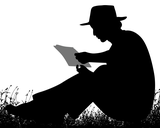What is the story behind this novel?
I witnessed the first several years of the Iraq War via radio from within my minivan as I drove my young daughters to and from elementary school and dance classes and soccer. I was aware of being very disconnected, and it bothered me. I thought about soldiers fighting one another. I thought about loss. But I did not know a single soldier during those early years.
The first veteran of Iraq who I met was named Reuben Santos. He was part-Native, a poet, and 24-years old.
I was teaching literature at the Institute of American Indian Arts (IAIA) in Santa Fe, NM in the spring of 2007 and we were two weeks into our study of One Hundred Years of Solitude by Gabriel Garcia Marquez. And that's when Reuben spoke up, sharing with the class the fact that he was recently returned from two tours of duty with the U.S. Army in Iraq. He had connected to some part of Garcia Marquez's work, most likely the character Colonel Aureliano Buendia who returns home after twenty years of war, but I don't remember the specifics. What I do remember--and what fueled me to write this novel at the very start--was my shock. That sitting here before me was a soft-spoken creative writing student who had recently been at war. Reuben shattered any previous notions I had about what a war veteran might look and act like. And it was in that moment, in my mind, that I began writing this novel.
It began as a novel about all kinds of unlikely soldiers. Poets and musicians and painters. What would it be like for these artists to experience loss on a daily basis? How might they find beauty within all that loss?
After two years of writing, I decided to try to reconnect with Reuben, to let him know about the project, and to see if he might be willing to answer a few questions that had come up for me in the writing. But instead of finding him, I discovered his obituary online, and the fact that he had taken his own life not long after I had known him in class. There was little doubt that his suicide was the result of having lost the battle with his war memories.
The news was devastating. I sat in bed and cried. How had this happened? Why?
Eventually I wrote to his parents, explaining my connection to their son and the fact that I was working on a novel largely inspired by him. I felt I somehow needed their blessing to go on. At the very least, I wanted them to know that I was working, writing, my response to the sadness I felt.
Eventually my commitment to writing the story overcame the darkness. I knew that it was important to finish the novel--to write a story that was grounded in truth and somehow also managed to find some redemption. It seemed necessary in my mind to create a new ending to Reuben's life. A re-imagined ending in which a young veteran begins to heal. A story in which a young veteran begins to see light within his darkness. This became my mission and Out There is the result.
How long have you been writing? Is this your first novel?
I've been writing fiction, working on my craft, for almost twenty years. But way before that, I studied political science and international relations in college and graduate school, and my first professional writing assignments were in that field. I wrote policy papers as a defense analyst with Science Applications International Corporation (SAIC) for the Department of Energy and the Arms Control and Disarmament Agency for a number of years before deciding to try what I'd always wanted to try: fiction. That early training provided me with great solidity as a writer. I'm forever grateful to my mentors, Lewis A. Dunn, Burrus Carnahan and Joseph Yager. They were merciless editors.
As for fiction, I am largely self-taught. I read. I study favorite stories and novels. I write daily.
Prior to Out There were two other novels, neither published. Both good efforts.
Read more of this interview.

